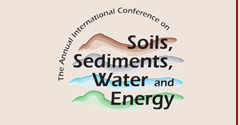Article Title
Application of Microemulsion to remediate Organochlorine Pesticides Contaminated Soils
Abstract
Microemulsion, a system containing water, surfactant, cosurfactant and oil phase, has the potential to enhance the solubility and bioavailability of hydrophobic organic compounds (HOCs). The aim of this study is to develop microemulsion which could enhance the bioremediation of organochlorine pesticides (OCPs) contaminated soils. After screening four surfactants and two plant oils, Triton X-100 and linseed oil were selected for microemulsion formation because of their respective instinctive higher solubilizing capacity over other candidates. Microemulsions formed with Triton X-100 and linseed oil could effectively enhance the aqueous solubility of 1,1,1,-trichloro-2,2-bis(p-chlorophenyl) ethane (DDT), and the enhancement was much higher than that achieved by Triton X-100 solution alone. Besides, the solubilization capacity of Triton X-100-linseed oil system was positively influenced by both cosurfactant (C/S ratios) and oil (O/S ratios) contents of the microemulsions. Desorption tests reveal that this microemulsion system is more effective than its counterpart Triton X-100 solution to desorb DDT from contaminated soil.
Recommended Citation
Zheng, Guanyu and Wong, Jonathan W.C.
(2010)
"Application of Microemulsion to remediate Organochlorine Pesticides Contaminated Soils,"
Proceedings of the Annual International Conference on Soils, Sediments, Water and Energy: Vol. 15, Article 4.
Available at:
https://scholarworks.umass.edu/soilsproceedings/vol15/iss1/4
